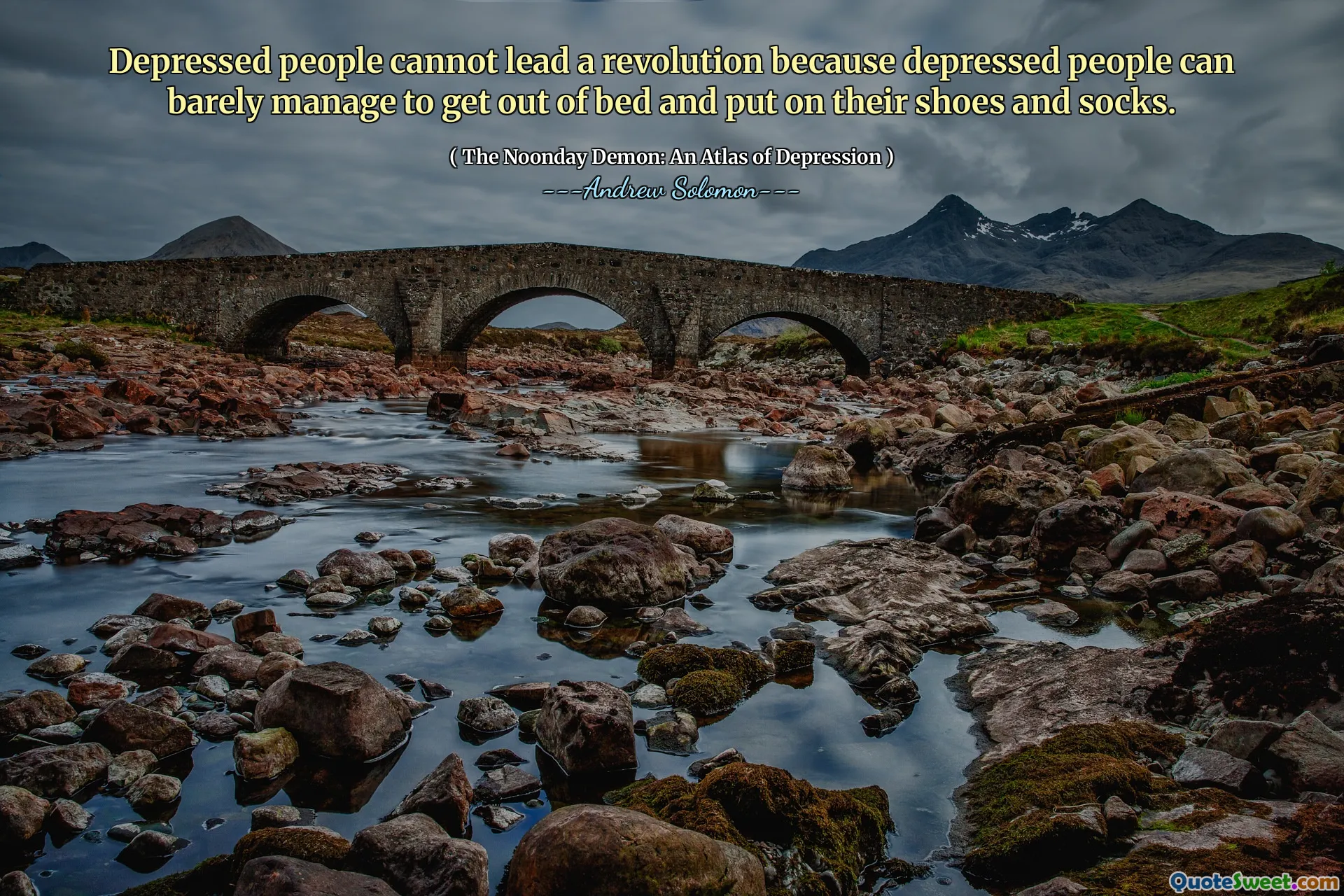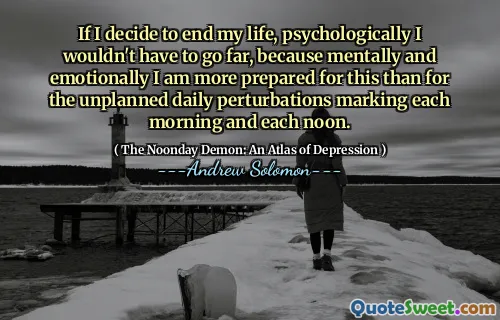
Depressed people cannot lead a revolution because depressed people can barely manage to get out of bed and put on their shoes and socks.
📖 Andrew Solomon
This quote highlights the profound barriers that depression can impose on an individual's ability to engage with societal change or collective movements. Often, revolutionary actions require energy, motivation, resilience, and a sense of purpose—qualities that depression can significantly diminish. When someone is struggling with depression, even the simplest daily tasks may feel insurmountable, which makes the prospect of leading a revolution seem both unrealistic and inaccessible. It underscores the importance of understanding mental health conditions as real and impactful, capable of limiting a person's capacity for activism or societal contribution. The quote also sheds light on the potential disconnect between the ideals of social change and the very real challenges faced by mental health sufferers. It challenges society to consider how support systems, treatment, and compassion can enable those affected by depression not just to survive but to potentially participate in broader societal efforts. Recognizing these limitations doesn't diminish the importance of change but emphasizes the need for a more inclusive approach that acknowledges mental health as a critical factor in social activism. Giving space and resources for mental health management can empower individuals who are battling depression, allowing them to find strength and resilience in their own time and way. This perspective encourages a compassionate understanding that societal progress must include recognizing and accommodating mental health struggles, rather than expecting everyone to engage in activism without addressing these underlying issues. Ultimately, the quote prompts a reflection on both the personal struggles of those with depression and the societal responsibility to support mental health as a foundation for active participation in social movements.







